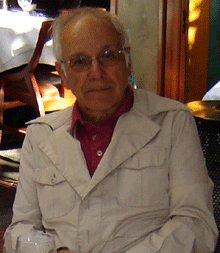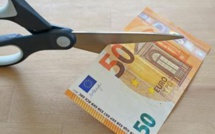
Paul Hollander is Professor Emeritus of Sociology at the University of Massachusetts at Amherst. He is the author of “Anti-Americanism” (1992), “Political Will and Personal Belief” (1999) and “Discontents: Postmodern and Post-communist” (2002). He has been invited, in April, by the “Chaire des Amériques” to give a conference on the issue of anti-americanism. On this occassion, he answered our questions about this topic.
Economie et société : How did you become interested in anti-Americanism?
Paul Hollander : I became interested in Anti-Americanism by observing it among my fellow academic intellectuals; also related to my interest in the political atitudes of the Western people examined in Political pilgrims (1981). This book focused on the political illusions of Western intellectuals stimulated by a mixture of anti-capitalism, Anti-Americanism, disappointment with modernity and with the inability of the U.S. to measure up to the very high expectations it has always stimulated at home and abroad. A very idealistic society invites criticism since these ideals cannot be realized or very imperfectly.
E. S : Your work has shown that there are many different types of anti-Americanism, and that a lot of them contradict each other. Could you please tell us more about this ?
P. H : The contradictions among different kinds of Anti-Americanism are related to its different sources in different grievances, or to the differences between particular groups: e.g. secular Western Europeans find American religiosity primitive, religious Muslems find American hedonism repulsive and morally depraved...
E. S : What are the main differences between domestic and foreign anti-Americanism?
P. H : Domestic and foreign Anti-Americanism are actually quite similar regarding specific charges; domestic is more linked to high expextations and idealism. Domestic anti-Americanism is much more limited to intellectuals and elites than the foreign versions although intellectuals are everywhere in the forefront. Foreign Anti-Americanism often has more rational sources in nationalistic grievances or economic competition.
E. S : Why do people get anti-American ?
P. H : Initialy it can be perceived as a justified response to wrongheaded American foreign policy or domestic failings. As I noted before one can be critical of many things in both foreign and domestic policies without being or becoming anti-American. Anti-Americanism is a sweeping, generalized rejection, a disposition that only partially depends on the actual wrongs the U.S. perpetuates.
Anti-Americanism has both rational and irrational components; the latter has to do with scapegoating impulses. Anti-Americanism is an all purpose remedy or response to a wide range of grievances and frustrations (to be distinguished from rational and specific critiques of U.S. policies, needless to say).
Anti-Americanism has both rational and irrational components; the latter has to do with scapegoating impulses. Anti-Americanism is an all purpose remedy or response to a wide range of grievances and frustrations (to be distinguished from rational and specific critiques of U.S. policies, needless to say).
E. S : If anti-Americanism can be analyzed rationally, what separates anti-Americanism from justified critiques ?
P. H : When the U.S. is seen as uniquely evil, corrupt, and destructive,when it is rejected and denounced unconditionally, without restraint we are in the realm of Anti-Americanism (or when it is compared to Nazi Germany or Arab terrorists). The interesting question is : where does the anti-American predisposition comes from ? I think much of it derives from a general and universal scape-goating impulse, from the relief we all feel when we can shift responsibility for our misfortunes to some outside entity or force. The choice of such entities depends on many historical-social and cultural conditions.
E. S : In France, we all know Michael Moore. In America, is he considered an anti-American?
P. H : Depends on who makes the assessment (of M.Moore) He certainly believes that American society is totally rotten, there is nothing good about it; but he is right about criticizing the health insurance system though naive and ignorant about the excellence of the Cuban system (of health care and in general).
E. S : After the 9/11, the anti-Americanism seems to have grown. Why ? Is it not paradoxical?
P. H : It is mainly due to the sole super power status, greater military-political assertiveness in Iraq and Afghanistan. Following 9/11, the linkage of anti-Americanism to anti-globalism (new version of anti-capitalism) and Islamic anti-Americanism. The European Union became more competitive, economically-politically. The personality of George Bush too attracts anti-Americanism, as do some of his policies. I wrote at some length in the introduction of Understanding anti-americanism (2004).
E. S : Do you think that the growth of anti-Americanism is something to be worried about?
P. H : Yes, the growth of Anti-Americanism is worrysome as any irrational scapegoating sentiment is. Unfortunately it can also be linked to the growing hatred of Israel.








